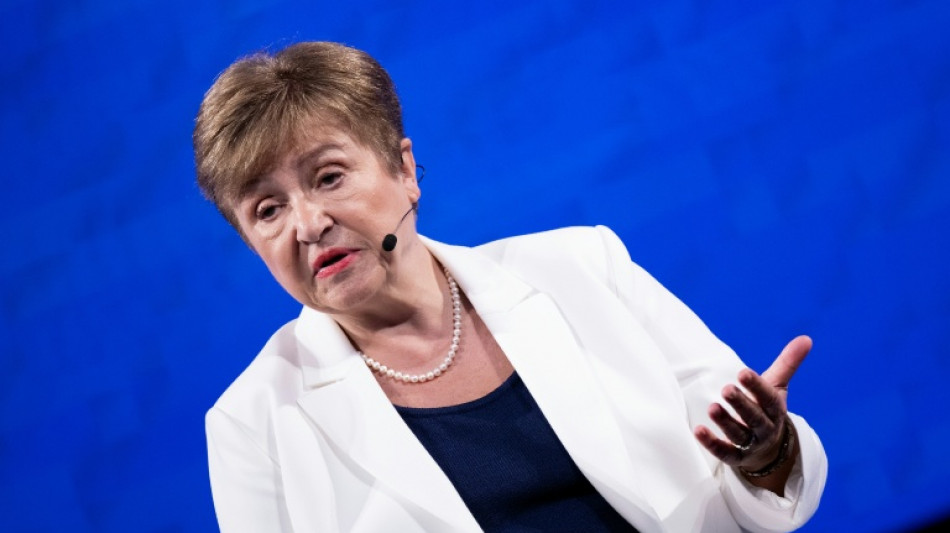
SCS
0.0200


The IMF and World Bank's semi-annual gathering of finance ministers and central bank governors gets underway in Washington on Monday, against the backdrop of new trade threats from the world's two largest economies.
Last week, China unveiled new export restrictions on critical minerals, prompting a fierce response from US President Donald Trump, who said he would impose new 100 percent tariffs on Beijing in response.
The news, delivered just after US stock markets closed on Friday, sent shares plunging after hours, as investors digested the prospect of a reinvigorated trade war.
Trump dialed back his rhetoric over the weekend, and by Monday morning traders appeared to have settled somewhat, with futures for Wall Street's three major indices trading higher before markets opened.
- Economy, jobs in spotlight -
International Monetary Fund managing director Kristalina Georgieva told an event in Washington last week that the world economy is doing "better than feared, but worse than we need."
She added that the Fund now expects global growth to slow "only slightly this year and next," propped up by better-than-expected conditions in the United States, and among some other advanced economies, emerging markets and developing countries.
The annual meetings in Washington will take place at the IMF and World Bank's headquarters, a short distance from the White House.
For the World Bank, the focus is likely to remain on job creation, with bank President Ajay Banga set to take part in several events aimed at boosting labor market participation in countries facing a surge in population growth.
The IMF will hold press conferences to discuss its regular trio of reports focused on the health of the global economy, fiscal policy, and global financial stability.
At the annual meetings there will be another roundtable on Ukraine, a country still facing near-daily drone and missile attacks more than three years after the start of Russia's full-scale invasion.
The event will be an opportunity to discuss "the needs for ongoing support to Ukraine and efforts needed for its reconstruction," according to the IMF.
There will also be meetings of finance ministers from the G7 group of advanced Western economies, and a gathering of the G20 group of nations, a forum that includes both the United States and China.
- Ongoing trade tensions -
Even before the most recent trade spat broke out, Trump's tariff plans had raised US import taxes on goods to the highest level in decades, cooling growth and pushing up prices.
So far, however, "all signs point to a world economy that has generally withstood acute strains from multiple shocks," Georgieva said last week.
"The world has avoided a tit-for-tat slide into trade war -- so far," she added.
The White House continues to insist that the long-term effect of tariffs will be positive for the United States, pointing to their relatively muted economic impact thus far.
F.Brown--ThChM